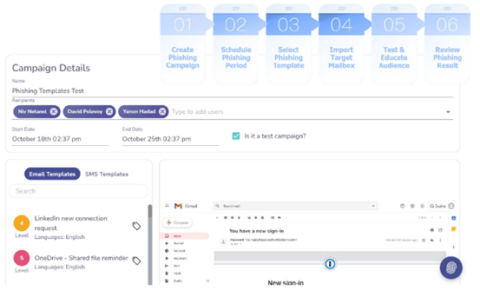Why Do People Still Fall for Phishing Scams?
Have you ever received a text claiming, “Your account has been locked. Click here to restore access” or an email saying, “Your package is delayed—update your details now”? It’s frustrating, but what’s worse is how often these scams work, even on those who think they’d never fall for one.
Phishing scams aren’t just about technology—they’re about psychology. They’re designed to exploit trust, fear, and curiosity, bypassing our logic and nudging us into clicking that malicious link or handing over sensitive information. Despite advancements in cybersecurity tools and awareness campaigns, these scams still rake in billions globally each year.
How Scammers Use Psychology Against You
So, what are some psychological tactics hackers commonly use?
1. Urgency and Fear
Imagine getting a text saying, “Unusual login detected. Reset your password now to secure your account.” You panic, click the link, and bam—you’ve handed over your credentials. Scammers create urgency because it overrides our ability to think critically.
2. Authority Bias
When an email looks like it’s from your boss or your bank, you’re more likely to act. Scammers exploit our tendency to trust authority figures or organisations, making us think, “This must be legit.”
3. Curiosity Killed the Click
Ever gotten a weird email with a subject line like “Here’s what we found about you…”? Curiosity kicks in, and before you know it, you’ve opened the email and clicked the malicious link. It’s human nature to want answers—scammers know that.
4. Emotional Manipulation
One of the cruellest tactics is playing on emotions. A scam might claim to be a friend in trouble or a plea for donations after a natural disaster. The emotional pull can cloud judgment, making people click before they think.
How to Avoid Phishing Scams
Now that we know the tricks and traps scammers use, staying ahead requires a proactive mindset. The most effective defence is a combination of vigilance, education, and leveraging the right tools.
1. Think Before You Click
Always pause before clicking on a link or opening an attachment, especially in unexpected messages. A quick moment of scrutiny can save you from handing over sensitive information.
2. Verify Requests
If an email or message seems urgent or suspicious, verify the request through official channels. For instance, call your bank directly instead of clicking a link in an email.
3. Stay Educated
Scammers evolve constantly, and so should your knowledge of their methods. Regularly update yourself on new phishing techniques and share this awareness with friends, family, and colleagues.
The financial and reputational impact of a cyberattack can be devastating on an individual – who may have their bank accounts emptied or have personal information or their identity stolen. Organisations may incur significant costs, including expenses for data recovery, system restoration, legal proceedings, and customer notification. Beyond financial losses, a successful cyberattack can severely harm a company’s reputation, eroding customer trust and jeopardising future business opportunities.
Using Technology to Beat Phishing Scams
Given the high cost to organisations, while individual vigilance is crucial, it is recommended that organisations adopt of a more structured approach to cyber security awareness and phishing training so that cyber security threats such as phishing remain at the forefront of employee’s minds.
Cyber security awareness training empowers employees with the knowledge and skills to identify potential threats and respond effectively. By learning to spot suspicious emails, avoid clicking on unverified links, and promptly report security concerns, employees play a critical role in preventing attacks before they escalate into significant issues.
CyBiz collaborates with Cywareness to provide tailored cybersecurity awareness training solutions. These programs enable organisations to harness their employees’ cybersecurity potential by exposing them to realistic and relevant cybercrime scenarios on an ongoing basis, all without requiring additional resources or involvement from the IT team.

Cyber security training is a strategic investment in the long-term success and resilience of your business. It is not a one-off activity but a continuous process that demands ongoing dedication. By focusing on employee education and awareness, organisations can turn their workforce from a potential risk into a critical defence against cyber threats. This proactive approach helps protect sensitive data, secure operations, and preserve the trust and confidence of customers.
Contact CyBiz to see how we can help implement cyber security awareness training for your organisation.
Posted in Blog, Cyber Security Training
